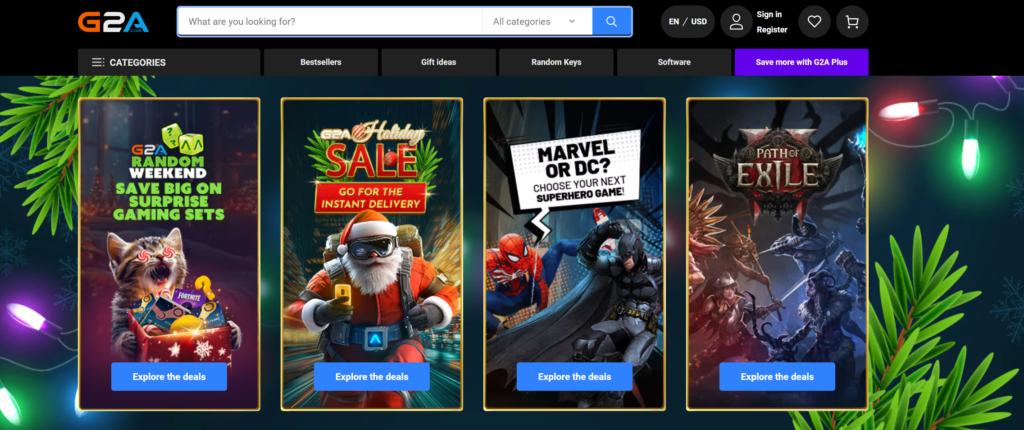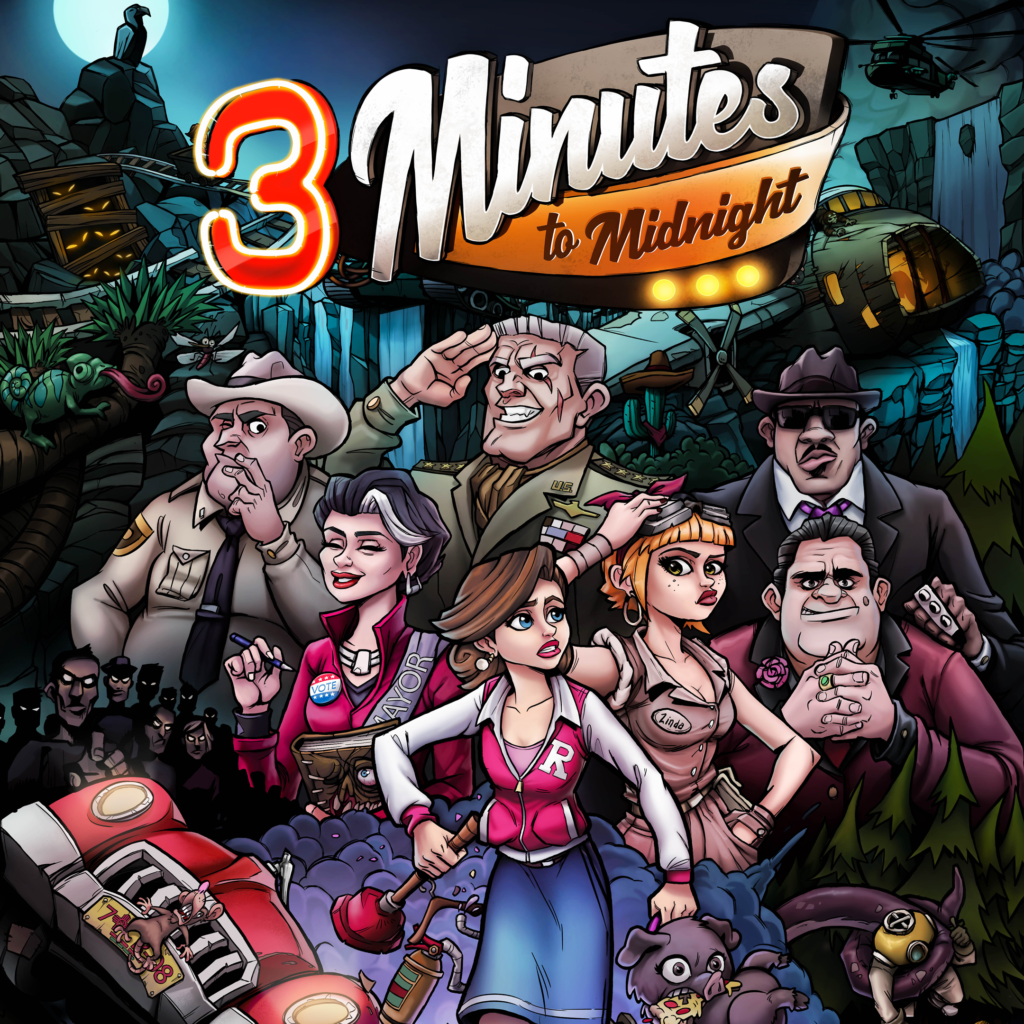Hello there, Silly creatures! It’s been a while since my first post, but since it’s only my mom reading this, I guess it’s fine. Today, I want to talk about the game key scammers, a tricky part of being a new indie developer. Making games is already hard and difficult enough, but once you release your game, you’ll see how risky these treacherous waters can be. Many of us dream of that big name in the gaming community who will share our game with their communities. But sadly, not everyone who contacts you is who they claim to be. Some game key scammers pretend to be popular influencers, important journalists, big Steam curators, or trusted bloggers. Their goal is to get free keys from you and then sell them on websites like Kinguin, Eneba, G2A, KBH Games, and Instant Gaming, leaving you with less income and a big headache.
In a world where thousands of new games hit Steam every year and most are quickly pirated, it’s more critical than ever to protect what you’ve created. Most new indie devs don’t earn much, so every key counts. By understanding the tricks these scammers use, you can spot them early and keep your precious keys safe. Don’t worry—you’re not alone. Many have been fooled before, but with a bit of knowledge, you’ll be ready to defend your game and keep your work in the hands of real players. Stick around, Silly creatures, and let’s dive deeper into how to protect yourself in these dangerous waters.

COMMON TACTICS GAME KEY SCAMMERS USE
Game Key Scammers work hard to look like important influencers, journalists, or media partners, all to get free keys they can resell for profit. Here are some common signs and tactics game key scammers use that you should watch out for:
⦿ Platforms like Steam, Nintendo, Xbox, or PlayStation ask you to share a public support email. Scammers use crawlers to find these emails and will flood your inbox once your game appears on popular or trending lists.
⦿ If you have a key request form on your website, scammers will use it. Even if you add warnings—like requiring an email that matches the claimed channel—they ignore it. These requests are often sent by bots, not real humans.
⦿ Anyone claiming to be from a big media outlet should have an email matching their brand. Free email services like Gmail, Outlook, or Yandex are red flags. A serious journalist or influencer usually has a proper domain email. If not, they normally share their official email on their website or social channels.
⦿ Scammers frequently put your game’s title in brackets or always write the full, long name. Real fans or media people typically use a shorter or more natural version. If the name looks copy-pasted, be careful.
⦿ Getting several requests from different “media” or “influencers” within minutes is not normal. Scammers send bulk emails, hoping at least one will trick you.
⦿ Scammers never want just one key. They typically ask for three or more, claiming it’s for their team or giveaways. In truth, these keys will likely end up sold on gray market sites.
⦿ If a supposed Steam curator tells you not to use Steam’s official curator key system, be suspicious. Always use the official system. Check the curator’s group members—if you see the same odd names (like “Wrecker”, “Abstract”, “gt4”…) often appear, it might be a scam network.
⦿ Some scammers buy domains that look very similar to websites of popular influencers to make their emails look real. Always check the official website to be sure.
⦿ Some scammers just copy the work of small influencers, stealing their videos and profile images. They look real because we developers can’t know every influencer in the world, so these are the hardest to spot
⦿ Many scammers link to blogs or YouTube channels that feel “off.” Maybe the thumbnails, voiceovers, or text seem AI-generated. If it feels fake, trust your gut.
⦿ If someone says they love your game, but their channel only covers a very different genre (like shooters, while you make slow story-driven adventures), that’s suspicious.
⦿ Some game key scammers copy a real influencer’s email but change one small letter or number. Use a text comparison tool (like https://text-compare.com/) to confirm if it’s legit.
⦿ Game key scammer curator groups typically have around 20,000 followers, all of which are likely purchased. A common feature they share is their “Recently Reviewed Games” section, where the Recommend/Not Recommend ratio is overwhelmingly skewed.
⦿ If you ignore them, some scammers send more automated messages. This pushy behavior is another warning sign.
SOME NUMBERS
Let’s take a quick look at the big picture. Imagine that the average developer gets around 1,500 free keys from Steam. Now imagine that about 10% of those keys fall into the hands of scammers. With so many indie games releasing each year—about 13,790 titles—this can add up fast. If we say 99% of these games are from new developers, that’s roughly 2 million keys going to scammers. If an average key costs around $10, you’re looking at about $20 million worth of keys in their hands. These numbers are just to give you an idea, but they show that we’re not talking about a small problem. The game key scammer business is big, and that’s why it’s so important to be careful and protect your hard work.

PRACTICAL STEPS TO PROTECT YOURSELF
Now that you know the common scams, let’s talk about how to stay safe. These small steps can save you a lot of trouble later:
⦿ Create a separate email address just for giving out keys, and don’t share it publicly. Post it as an image on your website or Steam page, so crawlers can’t find it easily.
⦿ If someone claims to be from a big media site, their email should reflect that brand. Make it clear that all key requests must go through your special email and come from a proper, official-looking address.
⦿ Sometimes real partners contact you from unexpected places. Take a few minutes to visit their website, YouTube channel, or social media. If they’re real, you’ll know soon enough.
⦿ As AI improves, game key scammers will make their messages look better, but these pages often lack a personal touch or soul. If it feels empty or off, be careful.
⦿ If you suspect someone is a game key scammer, don’t reply or block them. Just filter their emails. Some game key scammers get nasty if you challenge them, so it’s best not to interact.
⦿ Sometimes scammers pretend to be a real influencer. Real influencers are typically nice and will confirm if they asked for a key or not. If you’re unsure, reach out to them through their official contact info.
⚠️ Most game key scammers give up if you just ignore them. But sometimes, if your game is successful, you might notice strange bad reviews from suspicious accounts that review many random games without detail. This might be their revenge. You can’t always prove it, but you might see patterns linking them to suspicious groups or curators.
HOW KEYS END UP ON GRAY MARKET SITES
It’s not just one trick or a single weak link. Keys can find their way into gray markets through several channels. Here are some common paths:
⦿ As described before, scammers impersonate influencers or media figures to get free keys. They use fake emails, automated requests, or AI-generated content to convince you they’re legitimate partners.
⦿ Sometimes, the threat is inside your own team. A disgruntled or careless team member may leak keys or even sell them online. This can happen if internal security is weak, or if someone is looking to make a quick profit.
⦿ If someone hacks into your publisher account, email, or any system where keys are stored, they can grab them and resell them. Weak passwords, phishing attacks, or unpatched software vulnerabilities can open the door for these thieves.
⦿ Criminals may buy legitimate keys from official stores with stolen credit cards. Once the real owner notices the fraud, the developer faces chargebacks and financial losses, while the criminals are already reselling the keys at a profit.
⦿ If you run special promotions, giveaways, or early access programs, scammers might claim multiple keys and then flip them on gray markets. This is why monitoring how and where you distribute keys is so important.
⦿ Some gray market sellers buy large numbers of keys legally during sales, bundles, or in cheaper regions. They then resell them at higher prices on other platforms, undercutting the official store and creating confusion about which keys are legitimate and which aren’t.
By understanding these avenues, you can take steps to close these gaps—improving team security, verifying partners, tracking key distribution, and staying vigilant against hacking attempts and fraudulent credit card purchases.
FINAL WORDS
Alright, silly creatures, we’ve reached the end of today’s journey. By now, you know what to watch for, how to protect your keys, and when to trust your instincts. Most people in the gaming community are honest and supportive, so don’t let scammers ruin the fun. If something feels off, do a quick check or contact the influencer directly. With a bit of caution, you can keep your hard work safe. If this happens to you, don’t feel bad at all. These scammers have tricked some of the biggest developers and publishers as well. Your time is limited, and you need to focus on your game. Checking whether hundreds of emails are real or legit can be very time-consuming, so don’t blame yourself for falling into their trap.
If this has happened to you before, or if you think there are more things I should cover to help other indie devs, let me know. We all learn and grow together.
Here are some tools that might be worth checking:
‣ Fake curator keys end up in places like this
UNOFFICIAL GAME KEY WEBSITES
‣ ENEBA
‣ GAMIVO
‣ KINGUIN
‣ CDKEYS
‣ SCDKEY
‣ G2A
SEE YOU NEXT TIME…
I want to thank KaioKen (from Reddit), who—before we even got our first scammer’s email—shared valuable insights from his own experience. His advice helped us stay alert and prepared from the very start. I hope you find this information useful on your own journey. Keep making great games, stay safe, and don’t let scammers stop you! Until we meet again, Silly creatures, keep exploring these strange waters and creating wonderful worlds!


Leave a Reply